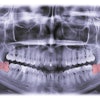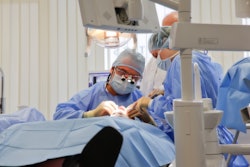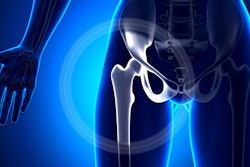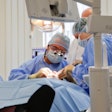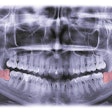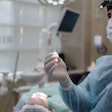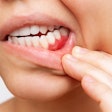
A group of dentists and physicians called for the ADA and the American Association of Orthopaedic Surgeons (AAOS) to reevaluate the use of antibiotic prophylaxis for patients with prosthetic joints in a commentary published in the Journal of the American Dental Association.
The call to action comes on the heels of a notable new study published in JAMA Network Open that showed no significant relationship between invasive dental procedures and subsequent joint infections among patients in England, where surgeons have never recommended the use of antibiotics to prevent late-stage joint infections.
Based on the new findings, the authors of the commentary said it's time for the ADA and AAOS to convene a committee, review the data, and develop agreed-upon guidelines. The two organizations haven't released joint guidance since 2003, according to the authors.
"These new data suggest there is no rationale for patients with prosthetic joints to receive antibiotic prophylaxis before invasive dental procedures," wrote the authors, led by Dr. Peter Lockhart, a research professor at the department of oral medicine, Carolinas Medical Center-Atrium Health, in Charlotte, NC (JADA, April 6, 2022). Lockhart is also an author of the study published in JAMA Network Open.
Long-standing debate about antibiotic prophylaxis
In the U.S., more than 7 million people have prosthetic joints, and that figure is climbing rapidly. Should a person develop a late-stage prosthetic joint infection, the results can be devastating, including removal of the infected prosthesis, limb amputation, and death.
To help prevent these types of infections from occurring, orthopedic surgeons in the 1970s and 1980s urged dentists to prescribe prophylactic antibiotics to patients with prosthetics who were undergoing invasive dental procedures.
But a 1988 workshop sponsored by the ADA concluded that the scientific data did not support the need for -- or effectiveness of -- antibiotic prophylaxis. Further, the workshop determined that the use of preventive antibiotics should be left to a dentist's clinical judgment in consultation with the orthopedist, according to the commentary.
In 1997 and again in 2003, the ADA and the AAOS published guidelines in which they both agreed to leave the decision on the use of antibiotic prophylaxis for patients with prosthetic joints to the dentist and the orthopedist. Then, in 2009, the AAOS released a patient safety committee opinion statement that essentially reverted to its pre-1997 practice of prescribing antibiotics for all prosthetic joints for a patient's lifetime.
Since 1997, the two professional groups have been unable to resolve whether invasive dental procedures predispose patients to late prosthetic joint infections (LPJI), as well as whether prophylactic antibiotics are safe and effective for preventing these infections, according to the authors.
"The critical need to focus on antibiotic stewardship dictates a reappraisal of guidelines on [antibiotic prophylaxis] use for [invasive dental procedures] in people with prosthetic joints," the authors wrote.
Now is the time to reconsider the guidance
The JAMA Network Open study, which was published in January, refuted the recommendation that patients with prosthetic joints undergoing invasive dental procedures need prophylactic antibiotics, according to the authors.
The cohort study found no significant relationship between invasive dental procedures and LPJI in about 8,500 patients admitted to hospitals in England during a six-year time period. In fact, it showed patients had fewer invasive dental procedures in the three months prior to developing a subsequent infection.
"This was more than 30 times larger than any previous study and had more than sufficient statistical power to detect any clinically significant association between [invasive dental procedures] and [LPJI]," the authors wrote.
Moving forward, the authors called on the ADA and AAOS to develop new agreed-upon guidelines. They also suggested that the two organizations consider ways to decrease the incidence of LPJI, specifically with regard to the possible link between bacteria and poor oral hygiene as the cause of a small percentage of joint infection cases.
"In the absence of a positive association between [invasive dental procedures] and subsequent [late prosthetic joint infection], there is no rationale for providing [antibiotic prophylaxis]," Lockhart and colleagues concluded.




